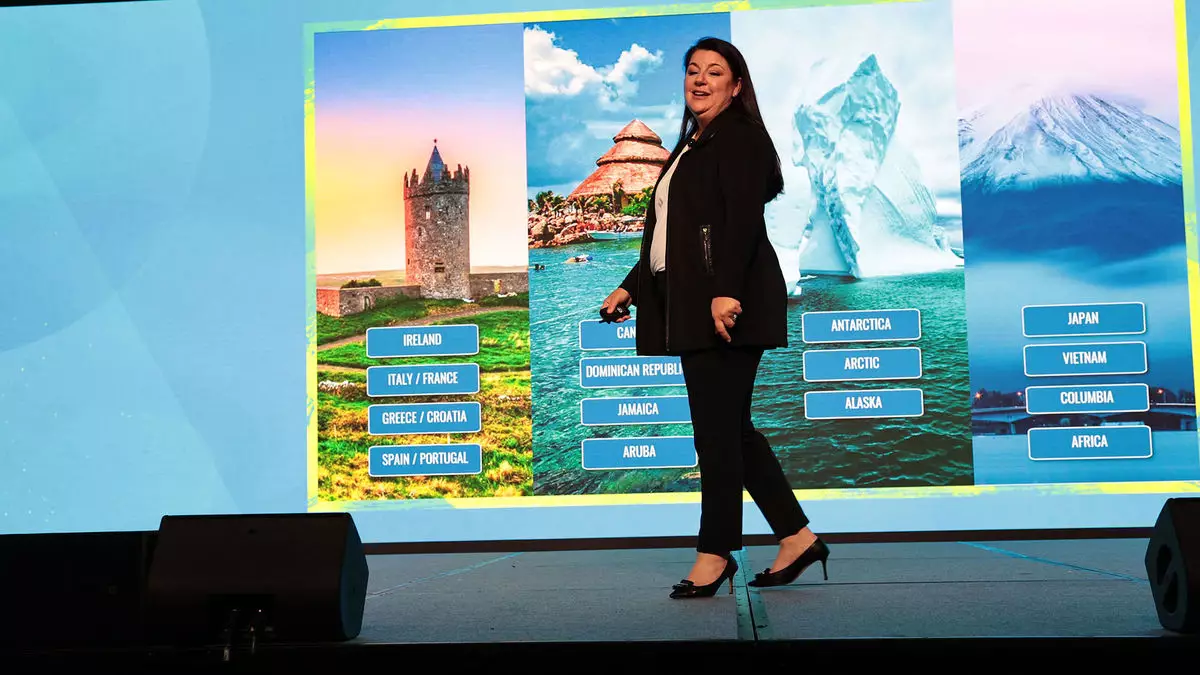As the travel industry emerges from the unprecedented disruptions of the past few years, notable players like American Marketing Group have been pivotal in reviving enthusiasm and demand among travelers. Despite a brief slowdown at the end of the first quarter of 2025, indications from industry insiders suggest that the momentum is not only recovering but is, in fact, on an upward trajectory. Nicole Mazza, the chief marketing officer, confidently announces, “Business is back, and business is soaring.” Such proclamations resonate deeply with those within the business, as they signal a rebound that many thought would take longer to achieve given the complexities of the pandemic aftermath.
The American Marketing Group has successfully harnessed the power of its agency brands, including the likes of Travelsavers and NEST, cultivating a thriving network that serves over 25,000 travel advisors. This expansive reach has enabled the company to adapt swiftly to market changes and client needs alike. The statistics are promising: during 2024 alone, 102 agencies entered the fold, generating a remarkable $279 million in preferred-supplier sales. The robust addition of 47 new agencies by May 2025 reinforces Mazza’s optimistic outlook, with these agencies already projected to contribute $196 million in sales.
Identifying Key Trends in Travel
The dynamics of travel have evolved, and understanding current trends is key to excelling in this revitalized market. Mazza shared insights into trending destinations and popular forms of travel, providing a blueprint for agencies looking to thrive. For example, guided tours are drawing crowds to destinations such as Italy, Ireland, and France. This highlights a trend toward experiential travel, where the journey is as significant as the destination.
When it comes to sun-seeking adventures, traditional favorites like Cancun and the Dominican Republic continue to lead, reaffirming their positions as mainstays in world tourism. The popularity of cruises remains indefatigable, expanding into exotic territories like Antarctica and the Arctic. Given the lure of unique experiences, adventurous travelers are increasingly intrigued by these majestic voyaging opportunities, particularly to regions that offer a blend of natural beauty and thrill.
Moreover, changes in traveler demographics reflect evolving preferences. The growing interest in multigenerational travel signifies a shift in how families want to connect, with grandparents taking their grandchildren on memorable excursions. Millennials and Generation X are at the forefront of this trend, prioritizing shared experiences that strengthen familial bonds, suggesting travel advisors can cater successfully to this demand by promoting family-oriented travel packages.
Riding the Solo Travel Wave
Solo travel is rapidly gaining traction, with a staggering 300% increase in online searches as identified by platforms like Google. This information reveals a profound desire among individuals to embark on adventures independently, yet safely. The emerging market of solo travel presents both challenges and opportunities; travel advisors are encouraged to develop and promote tailored products catering specifically to solo travelers, offering options that prioritize security while ensuring enriching experiences.
It’s also fascinating to observe the rise of “set-jetting,” where travelers choose destinations specifically because they feature in popular media. Titles like “Yellowstone” and “Black Panther” are not just entertainment; they are driving the tourism economy in previously overlooked locales. Suppliers can capitalize on this trend by crafting packages that align with fan interests, transforming simple vacations into immersive experiences.
The Shift from FOMO to JOMO
A noteworthy cultural shift is underway as potential travelers grapple with the concept of FOMO, or “fear of missing out,” transitioning towards a newer sentiment termed JOMO—”joy of missing out.” This emerging mindset illustrates a desire to prioritize wellbeing and relaxation over constant social media engagement and photo-sharing. This represents a golden opportunity for travel advisors, as they can offer vacations designed to foster solitude and introspection, allowing travelers to disconnect from their daily routines.
The revival of the travel industry portends not just a return to previous norms, but a reimagining of what it means to travel meaningfully. The challenges faced in recent years serve as reminders of the importance of adaptability, innovation, and an acute awareness of evolving consumer preferences. With leaders like Mazza at the helm, the future of travel seems bright, beckoning travelers to explore new horizons while experiencing emotionally rewarding journeys.

